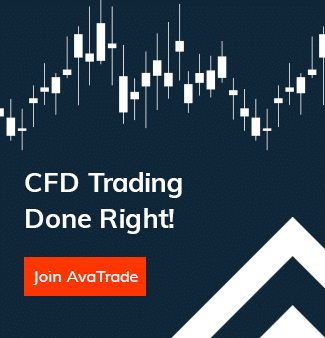Exxon Mobil Stock
| MT5/MT4 Symbol:#EXXONMOBIL |
| Instrument:EXXON MOBIL |
| Country:US |
| Currency:USD |
Trade Exxon Mobil Stock
Headquartered in Irving, Texas, Exxon Mobil Corporation, known as ExxonMobil, is an American, multinational oil and gas company. As the largest descendant of John Rockefeller’s Standard Oil Company, ExxonMobil was formed on the 30th of November 1999, with the merger of Mobil and Exxon. Mobil was formally known as the Standard Oil Company of New York, while Exxon was formally known as the Standard Oil Company of New Jersey.
ExxonMobil Stock Trading Information:
- MT4 Symbol: #EXXONMOBIL
- Trading Hours: Monday – Friday, 14:30-20:59 GMT London Time
- Currency: USD
- Country: US
- Exchange: NYSE
Start trading Exxon Mobil Stock CFDs with Friedberg Direct today!
As of November 2018, Exxon Mobil Corporation is the largest publicly traded international energy company in the world. The company uses innovation and technology to help meet the world’s growing energy needs. Exxon Mobil is a major manufacturer and marketer of basic petrochemicals, including aromatics, olefins, polyethene and polypropylene plastics, including a wide variety of specialty products.
In addition, the company is engaged in the exploration for, as well as the mining and sale of copper, coal and other minerals. To put it into perspective, ExxonMobil is one of the largest refiners and marketers of petroleum products and its chemical company is one of the largest in the world. ExxonMobil markets products all over the world under brand names such as Esso, Exxon, and Mobil. They also own several hundred subsidiaries globally, which assist in the production and distribution of ExxonMobil products.
Exxon Mobil is divided into 3 business divisions:
- Chemical Division
- Upstream – This includes oil exploration, extraction, shipping and wholesale operations. This division is based in Houston, Texas.
- Downstream – This includes marketing, refining and retail operations and this division is also based in Houston, Texas.
ExxonMobil ranks second in the 2018 Fortune 500 list, and is the largest non-governmental oil company in the world, producing 3% of the world’s oil and energy.
As of November 2018, ExxonMobil Corporation is the world’s ninth largest company by revenue, with Walmart in the top spot. By market capitalisation, in January 2018, this company had a market cap of $370 billion, but with declining oil prices, ExxonMobil’s market cap had declined to $319 billion by November 2018. Daily production from ExxonMobil is at roughly 6.2 million barrels of oil a day, regardless of the oil environment. If oil prices increase, this usually boosts the company’s cash flow. ExxonMobil is traded on the New York Stock Exchange (NYSE) under the ticker XOM. It falls under the Energy Sector and the Oil and Gas Integrated Industry.
Over the years, ExxonMobil has made some notable acquisitions. In 2009, the company acquired XTO Energy for $41 billion and Celtic Exploration Ltd in October 2012.
In 2016, ExxonMobil acquired the InterOil Corporation for $2.5 billion, and in 2017, they acquired Jurong Aromatics Corporation Pte Ltd, a company that manufactures aromatics and transportation fuels. Their most recent acquisition was MPM Lubricants on the 29th of April 2018.
ExxonMobil Stock History
Exxon Mobil has had 5 stock splits over the years. The first split for XOM, a 2 for 1 split, took place on the 26th of July 1976. After that, the stock splits occurred as follows: 2 for 1 split, 12 June 1981; 2 for 1 split, 15 September 1987; 2 for 1 split, 14 April 1997; and 2 for 1 split, 19 July 2001. Interestingly, ExxonMobil’s history of stock splits follows a distinctive pattern that many other stock market giants have used to guide their own stock-split decisions. Since 2001 though, ExxonMobil hasn’t split its shares.
The company was expected to do so in 2007 when oil prices hit $150 per barrel and Exxon shares neared triple-digit levels. After this, however, with oil prices declining, the stock eventually lost about a third of its value by 2010. By the end of 2013, ExxonMobil stock climbed above $100 per share, and it stayed there for much of 2014 before falling back. As of November 2018, the stock is trading at $75.49 a share.
Many investors are wondering if ExxonMobil will split their stocks again. Analysts have speculated that if oil prices rebound enough to have a dramatic impact on the company’s financials, the energy giant could give shareholders a long-awaited stock split. Since ExxonMobil’s revenue and profits are sensitive to commodity pricing, specifically crude oil trading prices, as it is the main component of the company’s profits, it is vital to keep track of this commodity’s price and movements when trading.
As a general rule, when crude oil is trading higher, that makes for larger profits for companies such as Exxon. When you look at the crude oil futures compared to the XOM stock chart, you can see that there are major similarities in terms of price movements. ExxonMobil also pays dividends to its shareholders. In June 2018, the company boosted its quarterly dividend by about 7% to 0.82 cents, the 36th year in a row it has increased the payout. The dividend was paid on the 11th of June 2018 to shareholders. In August 2018, the Board of Directors of Exxon Mobil Corporation also declared a cash dividend of 0.82 cents per share on the Common Stock, payable on the 10th of September 2018. Through the Exxon stock dividends, the company has shared its success with its shareholders for more than 100 years.
How to Trade ExxonMobil
ExxonMobil is one of the most followed and traded stocks on the New York Stock Exchange. Here is what to keep in mind when trading XOM stock:
- Energy Pricing
As mentioned previously, ExxonMobil is highly tied to the crude oil markets. In order to trade this stock effectively, it is vital to know what is going on with the West Texas Intermediate and Brent markets in the crude oil sector. Keeping track of oil prices and other economic events, such as OPEC meetings, will help one to understand the direction that the price of crude oil is likely to move. As a general rule, as oil prices rise, so does the revenue of Exxon.
- Global GDP
Another important factor to focus on is the GDP of some of the world’s leading economies. For example, you will need to know how well the economies are performing in major countries such as the United States, Great Britain, Germany, China, Japan, and other large economies. This will help to gauge whether or not there is going to be continued demand for crude oil. Understanding the supply and demand for crude oil as well as the production numbers, are vital.
- Earnings Reports
As with any other company, it is important to pay attention to the earnings reports of this company, as they provide insight into the profitability of Exxon. What’s truly interesting about this stock is that it can also be used as a gauge to trade other assets, such as crude oil futures and the Canadian dollar (CAD). Canada, one of the top oil producers in the world, exports over 3 million barrels of oil and petroleum products per day to the United States, making it one of the country’s largest suppliers. There is a high positive correlation between the Canadian/US dollar exchange rate and oil prices.
- Alternative Energy
From 2015, alternative energy has stolen some of the thunder from petroleum. The problem, however, is that most alternative energy has not been entirely successful in providing a viable alternative to crude oil. For a while, global investors were speculating that Exxon was going to lose a lot of money due to electric cars, but we have seen this dissipate. Based on this, you should be aware of all new developments and understand them clearly before expecting them to negatively impact ExxonMobil. So far, Exxon has always weathered these storms quite well, and it seems we are multiple years away from being able to replace crude oil.
- OPEC
Pay attention to the activities and oil production of the members of the Organisation of the Petroleum Exporting Countries (OPEC). While Exxon is not a member of OPEC, OPEC has the ability to move the price of crude oil. For example, if OPEC decides to cut production, that will bring up the value of crude oil, which could increase Exxon’s profits. The exact opposite can be true, so take this into consideration when trading.
- Geopolitical Events
Exxon has been in the crosswinds of geopolitical events more than once. One rather significant event was in Venezuela in 2007, as the Chavez regime decided to nationalise some oil fields that Exxon owned.
Other such events that could impact ExxonMobil is instability in the Middle East, in countries such as Kuwait. Exxon operates in some of the most hostile countries in the world, so this needs to be assessed as it could directly influence the profitability of the company.
Since ExxonMobil plays such a vital role in the global supply of oil, it is important to look into the impact that all these factors can cause in the short term, rather than in the long term when the Exxon stock price would have discounted them accordingly.
Disclaimer: This is a general analysis and not to be viewed or construed as actual trading advice or a recommendation of any kind and just an example of how a particular instrument could, potentially, be traded.
Why Trade ExxonMobil Stocks with Friedberg Direct
- Regulation: Friedberg Direct, a division of the Friedberg Mercantile Group Ltd, is a member of the Investment Industry Regulatory Organization of Canada (IIROC) and a member of the Canadian Investor Protection Fund (CIPF).
- Leveraged Trading: Since it is costly to purchase units of ExxonMobil stock directly, the leveraged trading model of Friedberg Direct CFDs gives you exposure to this highly volatile investment with much lower capital requirements.
- Ability to Short Sell Exxon stock: ExxonMobil can be a highly volatile stock, whose price rises and dips frequently. When you short-sell, you can quickly and easily profit from these price movements, regardless of their direction.
- World Leading Trading Platform: With Friedberg Direct, you can trade on the world’s most popular trading platform, MetaTrader 4. On this platform, you will find an environment that has been tried, tested and refined to suit you, no matter your trading style and preferences.
Join the Friedberg Direct family today and trade ExxonMobil stock and other CFDs. Start CFD Trading with Friedberg Direct Now!
Disclaimer: Please note these are stock CFDs (Contracts for Difference)
When you enter into a CFD trade you don’t buy the actual stock itself but instead agree on a contract with the broker to settle the difference in value between the entry and exit price of the Stock based on the price the stock is trading at on the Exchange it is listed. That means when you trade Stocks CFDs with Friedberg Direct you get a flexibility that stock market rules often make very difficult or even impossible for some.







